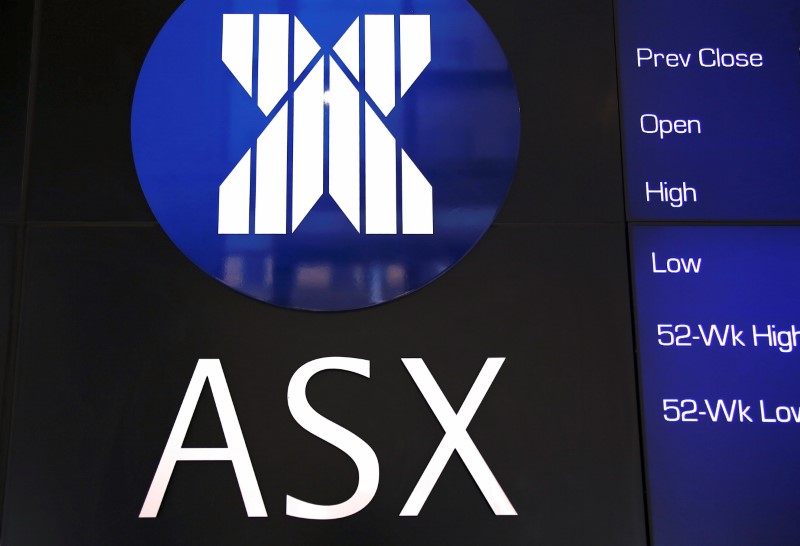* Fed dashes aggressive rate cut hopes
* Financials lose, mining sector weaker
* NZ50 slightly lower, circles record levels
(Updates to close)
By Rushil Dutta
June 26 (Reuters) - Australian shares ended lower on Wednesday, amid broad weakness in equities globally, after U.S. Federal Reserve officials dampened investors' expectations of aggressive rate cuts soon.
The S&P/ASX 200 index .AXJO fell 0.26% at the end of trade to 6,640.50 points. The benchmark was 0.1% lower on Tuesday.
Equity markets have rallied this month as investors priced in a rate cut as early as the Fed's July policy-setting meeting, where a 25 basis point cut is being seen with certitude.
However, some market participants were wagering on a half percentage point cut.
St. Louis Fed President James Bullard squashed those hopes on Tuesday, saying he did not think the U.S. economy is dire enough to warrant a 50-basis-point cut in July. Fed Chairman Jerome Powell pushed back on President Donald Trump's demand for a significant rate cut. got fairly aggressive with its pricing, too," Damien Hennessy, co-founder of Heuristic Investment Systems said earlier in the session, reflecting on the pull-back in shares after the Fed comments.
Australia's financial sector, the biggest on the main board, led the day's losses, with the country's biggest banks falling in a range of 0.2%-1.1%.
The metals and mining index .AXMM , unaided by a stronger dollar, ended marginally lower. Its biggest constituent BHP Group BHP.AX finished 0.2% lower, while smaller rival Rio Tinto (LON:RIO)'s RIO.AX shares were up 0.8%.
A resurgent dollar, however, pushed gold prices off a six-year peak. Aussie gold stocks, which track the precious metal, also declined in response, with the sub-index .AXGD falling 0.8%.
New Zealand's benchmark S&P/NZX 50 index .NZ50 ended marginally lower at 10,408.05, still hovering around record levels.
Earlier on Wednesday, the Reserve Bank of New Zealand stood pat on its benchmark interest rate, maintaining it at a record low of 1.5%.
However, the central bank signalled that lower interest rates may be needed in the future, citing subdued domestic growth and global economic weakness.
